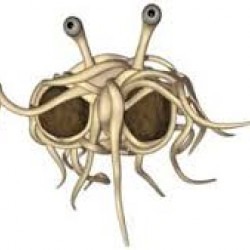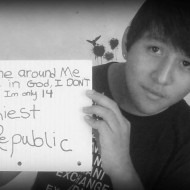Let me get this right, Christians claim the bible is correct and Atheists wrong because Atheists don’t believe a six hundred year old man built a battleship size wooden boat by hand and then collected at least two from the millions of each species on earth, including the habitat specific dietary dependent and symbiotic ones without electricity, refrigeration, plumbing or air conditioning was able to house, feed, water, dispose the waste of and provide veterinary care for all of them without losing a single one. Thus making an entire species extinct in the process while the boat floated around during a world-wide flood to the height of mount Everest for several months. An event that went unnoticed by the Egyptians, Chinese, Australian aborigines and every coexisting society at the time. Moreover, since Atheists don’t believe that plant life on earth survived the crushing pressure, darkness and salinity of eight kilometers of water overhead before the water magically receded and the animal species on the ark managed to disembark and traverse the planet to their present locations from the deserts of the middle-east which according to some included dinosaurs. That being said, because Atheists don’t believe this we are the strange ones?
Subscription Note:
Choosing to subscribe to this topic will automatically register you for email notifications for comments and updates on this thread.
Email notifications will be sent out daily by default unless specified otherwise on your account which you can edit by going to your userpage here and clicking on the subscriptions tab.





























All I can do is LOL. Your view of Noah's story is very particular. It is so smart and funny - loved it!
Whatever floats your boat! (pun intended, but it would not be sea worthy...wood...too big)
I would really hate to be the few humans on board that had to share all the parasitic organisms that needs human hosts... eeeeewww!
"humans have acquired an amazing number of parasites, about 300 species of helminth worms and over 70 species of protozoa. Many of these are rare and accidental parasites, but we still harbor about 90 relatively common species."
http://cmr.asm.org/content/15/4/595.full